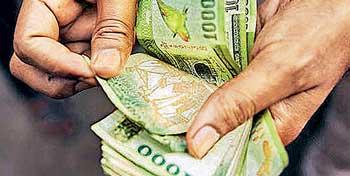12 Mar 2024 - {{hitsCtrl.values.hits}}
 Sri Lanka’s bankers vow to continue exercising mortgage actions against the defaulted creditors through the courts of law, once the suspension of the parate rights of banks comes into effect.
Sri Lanka’s bankers vow to continue exercising mortgage actions against the defaulted creditors through the courts of law, once the suspension of the parate rights of banks comes into effect.
In a media statement yesterday, the Sri Lanka Banks’ Association (SLBA), on behalf of all the licensed banks, including the state banks, public listed companies and branch offices of international banks, emphasised that the suspension of parate execution would not preserve a mortgaged asset of a defaulter. Reason being, the banks would continue to exercise mortgage action through the courts of law.
“The process requires each individual case to be put to the banks’ boards of directors and the publication of notices in the media. It is not a process that can be implemented at the whim of any bank officer.
The ‘parate’ execution provision is only one option available to the banks in the debt recovery process, that mitigates the impact of the delays in the process,” the SLBA said.
The SLBA also noted that the bankers would utilise the parate remedy as a last resort, prior to going to court, until the existing laws are amended to incorporate the proposed suspension endorsed by the Cabinet of Ministers.
The SLBA highlighted the parate rights of banks as a necessary legal remedy to recover the outstanding debts of the borrowers.
“This is when they have been unable to persuade the borrowers to cooperate in reaching workable debt repayment rationalisation plans (such plans sometimes necessitate stronger expense discipline and disposal of non-core, non-income producing assets). Continuation of an irretrievable business is not a good policy in the national interest and most importantly, cannot be funded long term by the bank depositors,” it elaborated.
Expressing alarm over the state intervention to curb the debt recovery laws, the SLBA pointed out that there had been no consultation with the banks. It went on to caution that the cost of borrowing would increase for all borrowers, as a result of the government decision.
It asserted that the banks believe that the reported unilateral intervention by the Cabinet of Ministers is unnecessary and will weaken the strength of the banks in performing their role in supporting the economic revival of the country.
Key issues highlighted
Warns suspension may interrupt ongoing projects with int’l donor agencies
The SLBA claimed that the suspension of parate action would interrupt the ongoing projects with the international donor agencies.
“The suspension of parate action will interrupt and stall the ongoing initiatives of international agencies such as the IMF, World Bank Group and ADB as well as the Central Bank, which are working with the banks to establish a resolution process that includes the revival of distressed debt of banks by helping the borrowers towards rehabilitation and preservation of residual value of such business assets,” it added.
While urging the policymakers to make decisions based on data and the national economic interest of the entire country, it urged the government not to be swayed by the lobbying of a small group of loan defaulters.
22 Nov 2024 8 hours ago
22 Nov 2024 22 Nov 2024
22 Nov 2024 22 Nov 2024
22 Nov 2024 22 Nov 2024
22 Nov 2024 22 Nov 2024